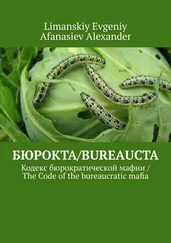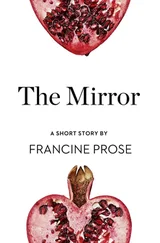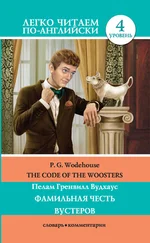A frisson of fear, like a spider crossing her neck.
“So you chose me to kidnap,” Sophie said briskly, as though some sort of deal had been struck. “You spent the money and the time. I suppose this is about revenge for the NATO air strikes against Belgrade. Am I right?”
But Krucevic was staring at his watch; he had already dismissed her.
“Otto — bring in the boy. It's time for his shot.”
One of the silent men — bald, muscular — disappeared through a door behind Sophie.
So he was not Michael, either. That left two possibilities: the curly-haired weasel with the nervous face, or the lean blond with the day-old growth of beard. The latter had kept his eyes trained upon her through most of the interview, and curiously, his watchful stillness had given her strength. He was Michael, she was sure of it. She smiled faintly at him; his gaze shifted to Krucevic.
The door behind Sophie opened again. A child's voice, sharp and high-pitched with fear.
“Please, Papa! Not the needle! I promise I'll be good I promise” Sophie craned her neck around and saw them: the powerful bodyguard, and the boy rigid with apprehension. Unruly dark hair fell like a protective screen over his wide gray eyes; from the frailness of his body, Sophie thought he might be about ten. He had called Krucevic his father, and now the man was reaching for a syringe.
Involuntarily, Sophie strained against her bonds.
“Now, Jozsef we talked about this before,” Krucevic said soothingly. With one hand he stroked the boy's pale cheek; the other held the hypodermic.
“For the good of the cause, remember? You want to make me proud. The thigh, Otto, I think.”
In one deft movement, Otto thrust the boy face downward on the floor and pinned him there. Krucevic sank the needle into the flesh of his son's leg.
Jozsef cried out.
“You bastard,” Sophie hissed. “What have you done to him?”
Krucevic twisted his fingers in her hair and pulled her face close to his own.
“Nothing I wouldn't do to you, Mrs. Payne. Given time.”
Jack Bigelow's cowboy-booted feet were propped on his broad mahogany desk. Like many men who had come late in life to Texas, he made a point of embracing its eccentricities. But then, Texas had given him the presidency.
“I've got the director of our Federal Bureau of Investigation here, Fritz,” he said, “and a few other folks who'd like to hear what you have to say. So I'm going to put you on the speakerphone. That okay with you?”
“Of course, Jack.” The German chancellors voice sounded remote and disembodied.
Dare Atwood immediately discounted anything the man might say. Someone comfortable with an audience of unknowns, in a room he couldn't see, was hardly planning to bare his soul.
“I have to tell you, Fritz, I'm just sorrier'n I can spit about the mess you've got over there in Berlin,” Bigelow drawled.
“A tragedy,” Voekl replied, “for both Berlin and the German nation. It is our Oklahoma City.” He spoke English too carefully, caressing each syllable before releasing it with regret.
“Any word of Vice President Payne?” Bigelow asked.
“Jack, I regret to tell you that I have no news to offer. None of the hospitals in Berlin has admitted Mrs. Payne as a patient, and the medical helicopter itself has not yet been located. We are doing everything in our power, of course.”
“Sure you are.” Bigelow's shrewd eyes, utterly devoid of their usual warmth, slid over to Dare.
“And you're still goin' with the notion of these Turks, Fritz? As the responsible parties, I mean?”
“Every indication at the bomb site would lead me to believe that the Turks are responsible, yes. We are confident of an arrest very soon.”
“Once our FBI boys get over there excuse me, boys and girls, Fritz, don't want to be sexist if I can help it maybe we'll get a better handle on what's goin' on. We're sendin' out a team tonight, should be there by dawn tomorrow.”
“That is excellent news, Jack.” Voekl said it woodenly.
“You must know, however, that we are very well equipped to manage the crisis. We have been expecting some reprisal from the Turks for some time. They are unhappy with the stringency of our program of repatriation.”
“Naturally,” Bigelow tossed back, as though he had never trashed the German repatriation program on television worldwide, “and when folks are unhappy, Fritz, no tellin' what they'll do. Now let's us just suppose for a minute that we've got a different group of unhappy people runnin' around Berlin. Turks'd make real good whipping boys, wouldn't you say, for anybody else operating in the region?”
“Perhaps. But whether we are talking about the Palestinians or the Islamic fundamentalists or even the Kosovo Liberation Army, Jack, we both know that we are talking about the same thing. Third-world extremists who bring their battles right to the doorsteps of Europe and the United States. We have got to start cutting the ground from beneath their feet. Denying them a platform from which to launch their attacks.”
“Sending 'em back home, eh, Fritz? Well, as we like to say around here, that's just openin' a whole nut her can of whup-ass, now i'n'it?”
“Pardon?”
It was as well, Dare thought, that Voekl couldn't see the joyful malice on the President's face.
“Just an expression,” Bigelow said. “You know how much I deplore the use of terrorism. Jack.”
“Don't we all.”
“But you will agree, I am sure, that a nation without hope may naturally turn to violence to achieve its ends.”
“That's the story of America, Fritz.”
“Yes, well .. . you have publicly stated that the fight to end terrorism will be this century's greatest challenge. I agree I have always agreed and I am ready to help you in your fight. For fifty-five years the German people have stood on the front line of Western civilization. Beyond us, and the protection of our culture, lies all the anarchy of the East. We have already begun to see the destructive tide of Muslim immigrants from Yugoslavia and the disintegrating Central Asian republics. They all end up in Germany eventually, ripe for violence.”
“Not to mention the Palestinians you folks've been harboring for decades,” Bigelow added.
“The policies of my predecessors were lamentably lax. But I know that terrorism will be the twenty-first century's Cold War, Jack and I remember the Cold War better than most.”
“It was the making of you, Fritz, as I recall.”
Before he had founded the Social Conservatives in the former East Germany, Fritz Voekl had been a rising star of the Communist Party. He'd begun public life as the young director of the most efficient munitions complex in Thuringia; he'd parlayed that success into a berth in the Party hierarchy. By 1988, however, it was clear that Voekl found the Party too confining. He publicly denounced Communism and was imprisoned for his pains. That act of defiance instantly made him a local hero. Not to mention a political phoenix. When the Party structure collapsed like faulty scaffolding a year later, bringing the Wall and everyone down with it, Voekl was set free to enjoy the show. He opened champagne amidst the barbed wire, he swung a pickax at Checkpoint Charlie. He had always possessed an exquisite sense of timing and a shrewd ability to read the people's mood.
“So it was,” he said to Jack Bigelow now. “I learned many lessons from my life behind the Iron Curtain. Chief among them is this: The nation that denies a people hope will never win the war. A nation that gives its people hope, Jack, gives them a reason to fight.”
“And you see hope as … ?”
Читать дальше
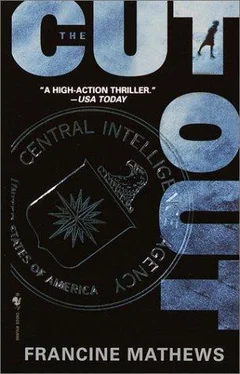





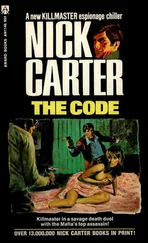
![Микки Спиллейн - Death of the Too-Cute Prostitute [= Man Alone]](/books/437201/mikki-spillejn-death-of-the-too-thumb.webp)
